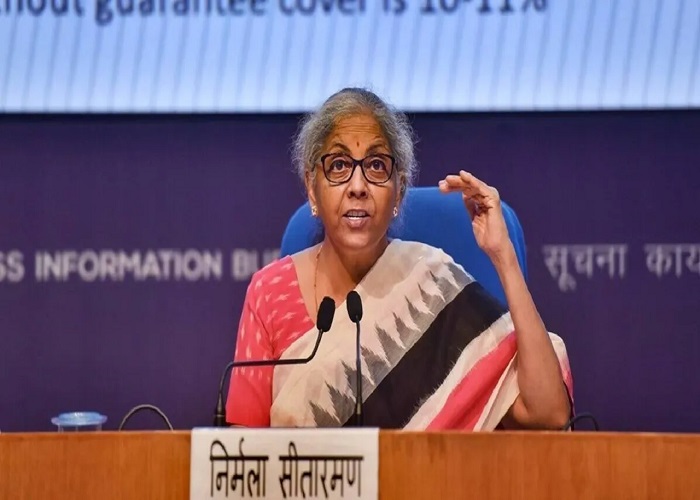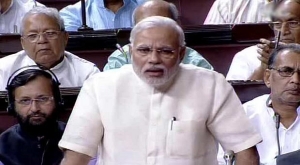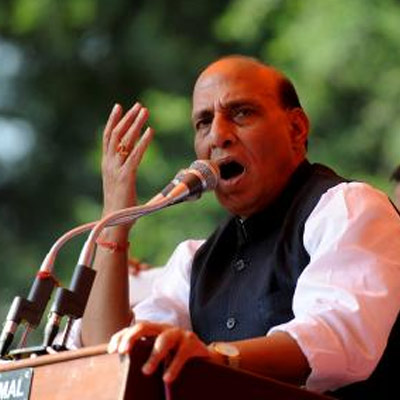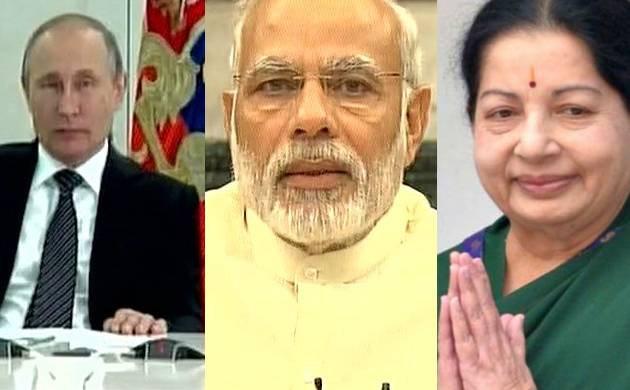GST Reduced: Essentials Cut to 5%, Autos from 28% to 18%, Insurance and Life-Saving Drugs Exempt; New Rates from 22nd

नई दिल्ली :
-Aditya Amitabh Trivedii
New Delhi, 3 September : The Government has reduced GST on a wide range of items across multiple categories. The revised rates will come into effect from the 22nd of this month.
Briefing the media in New Delhi today, Finance Minister Nirmala Sitharaman said that GST on common man and middle-class items has been reduced from 18 per cent or 12 per cent to 5 per cent. She informed that items such as hair oil, toilet soap, soap bars, shampoos, toothbrushes, toothpaste, bicycles, tableware, kitchenware, and other household articles will now attract only 5 per cent GST. She further said that GST on ultra-high temperature milk, chena and paneer has been reduced to zero from 5 per cent, while all Indian breads will now be taxed at nil rate. Ms. Sitharaman also announced that GST on food items such as namkeen, bhujia, sauces, pasta, instant noodles, chocolates, coffee, preserved meat, cornflakes, butter and ghee has been brought down from 12 per cent or 18 per cent to 5 per cent.
The Minister added that the GST slab on items like air-conditioning machines, televisions above 32 inches, all types of TVs, dishwashing machines, small cars and motorcycles has been lowered to 18 per cent from 28 per cent. She said that labour-intensive industries have extended strong support, while farmers and the agriculture sector will also gain from today’s decisions. The Minister said that GST on all agricultural equipment has been reduced from 12 per cent to 5 per cent.
For the automotive sector:
• GST reduced from 28% to 18% on small cars and motorcycles up to 350 cc.
• GST on buses, trucks and ambulances reduced from 28% to 18%.
• Uniform 18% rate on all auto parts.
• GST on three-wheelers reduced from 28% to 18%.
GST reduction on health-related items:
• GST on 33 life-saving drugs and medicines reduced from 12% to 0%.
• GST reduced from 5% to 0% on 3 life-saving drugs used in the treatment of cancer, rare diseases and other severe chronic diseases.
• GST reduced from 12% to 5% on a number of drugs and medicines.
On insurance:
To make insurance affordable for the common man and expand coverage:
• Exemption of GST on all individual life insurance policies, whether term life, ULIP, or endowment policies, and reinsurance.
• Exemption of GST on all individual health insurance policies, including family floater and senior citizen policies, and reinsurance.
The Finance Minister further said that Prime Minister Narendra Modi set the tone for the next generation of tax reforms and ensured that people receive benefits at the earliest. She said that the government has corrected inverted duty structure issues, resolved classification-related matters, and ensured greater stability and predictability in the GST regime.
The 56th Meeting of the GST Council was held in New Delhi today under the chairmanship of the Finance Minister. The Council discussed India’s next-generation GST reforms, including rationalisation of tax rates and simplification of compliance. Union Minister of State for Finance Pankaj Chaudhary, Chief Ministers of Delhi, Goa, Haryana, Jammu and Kashmir, Meghalaya and Odisha attended the meeting. Deputy Chief Ministers of Arunachal Pradesh, Bihar, Madhya Pradesh, and Telangana, the Governor of Manipur, and Finance Ministers of several States and Union Territories also participated.
New Delhi, 3 September : The Government has reduced GST on a wide range of items across multiple categories. The revised rates will come into effect from the 22nd of this month.
Briefing the media in New Delhi today, Finance Minister Nirmala Sitharaman said that GST on common man and middle-class items has been reduced from 18 per cent or 12 per cent to 5 per cent. She informed that items such as hair oil, toilet soap, soap bars, shampoos, toothbrushes, toothpaste, bicycles, tableware, kitchenware, and other household articles will now attract only 5 per cent GST. She further said that GST on ultra-high temperature milk, chena and paneer has been reduced to zero from 5 per cent, while all Indian breads will now be taxed at nil rate. Ms. Sitharaman also announced that GST on food items such as namkeen, bhujia, sauces, pasta, instant noodles, chocolates, coffee, preserved meat, cornflakes, butter and ghee has been brought down from 12 per cent or 18 per cent to 5 per cent.
The Minister added that the GST slab on items like air-conditioning machines, televisions above 32 inches, all types of TVs, dishwashing machines, small cars and motorcycles has been lowered to 18 per cent from 28 per cent. She said that labour-intensive industries have extended strong support, while farmers and the agriculture sector will also gain from today’s decisions. The Minister said that GST on all agricultural equipment has been reduced from 12 per cent to 5 per cent.
For the automotive sector:
• GST reduced from 28% to 18% on small cars and motorcycles up to 350 cc.
• GST on buses, trucks and ambulances reduced from 28% to 18%.
• Uniform 18% rate on all auto parts.
• GST on three-wheelers reduced from 28% to 18%.
GST reduction on health-related items:
• GST on 33 life-saving drugs and medicines reduced from 12% to 0%.
• GST reduced from 5% to 0% on 3 life-saving drugs used in the treatment of cancer, rare diseases and other severe chronic diseases.
• GST reduced from 12% to 5% on a number of drugs and medicines.
On insurance:
To make insurance affordable for the common man and expand coverage:
• Exemption of GST on all individual life insurance policies, whether term life, ULIP, or endowment policies, and reinsurance.
• Exemption of GST on all individual health insurance policies, including family floater and senior citizen policies, and reinsurance.
The Finance Minister further said that Prime Minister Narendra Modi set the tone for the next generation of tax reforms and ensured that people receive benefits at the earliest. She said that the government has corrected inverted duty structure issues, resolved classification-related matters, and ensured greater stability and predictability in the GST regime.
The 56th Meeting of the GST Council was held in New Delhi today under the chairmanship of the Finance Minister. The Council discussed India’s next-generation GST reforms, including rationalisation of tax rates and simplification of compliance. Union Minister of State for Finance Pankaj Chaudhary, Chief Ministers of Delhi, Goa, Haryana, Jammu and Kashmir, Meghalaya and Odisha attended the meeting. Deputy Chief Ministers of Arunachal Pradesh, Bihar, Madhya Pradesh, and Telangana, the Governor of Manipur, and Finance Ministers of several States and Union Territories also participated.




